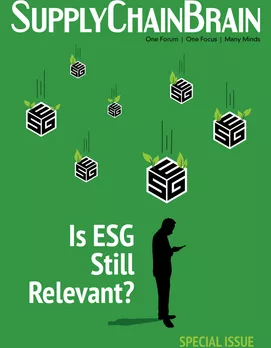
When a fleet manager walks out the door without a succession plan, the fallout is immediate. Preventive maintenance derails, compliance filings are missed, and work orders begin piling up. Vehicles are sidelined, drivers grow frustrated, and delivery times slip. What starts as a vacancy turns quickly into a full-blown operational fire.
Fleet leadership turnover causes instability far beyond the shop floor. Without experienced managers in place, truck availability drops, repairs are delayed, and cost control becomes difficult. Driver and technician shortages are widely recognized challenges, but leadership turnover is often overlooked. Still, it can be just as disruptive to supply chain performance.
What Happens When Fleet Leadership Is Unstable
Losing a fleet manager isn’t just an HR issue. These individuals are key to maintaining operational efficiency, cost control, and compliance. Frequent changes at the top create ripple effects throughout the organization.
Disruptions in decision-making. Fleet management is a long game — budget cycles, replacement planning, technology roadmaps. Every time a fleet manager leaves, strategic initiatives are put on hold while a new leader starts from scratch, relearns the operation, and gets buy-in all over again. It’s not just savings. Decision paralysis will put the mission in jeopardy.
Compliance risks. New fleet managers often have to catch up on regulatory requirements, DOT filings, emissions mandates, and safety protocols. A missed deadline can result in fines, audits, or even suspended operations, posing a serious risk to fleet performance. A good hire will know these, but won’t know where the company is at.
Impact on vendor relationships. Strong supplier agreements and pricing structures depend on consistent leadership. When management shifts frequently, relationships with vendors and service providers become unstable, leading to potential renegotiation delays, lost bulk pricing, and inconsistent service levels.
Tech and driver retention suffer. Drivers notice when leadership disappears. They start questioning decisions, schedules get sloppy, and before long, you’re bleeding out through increased turnover and rising recruitment costs.
Rising costs. Fleet managers oversee budgeting, cost controls, and maintenance expenses. Without a steady hand guiding these financial decisions, costs can spiral out of control, impacting overall profitability and financial forecasting. Margins are tight enough without this.
Many Fleet Leaders Aren’t Set Up for Success
Here’s the uncomfortable truth: Most new fleet leaders don’t get trained to lead. They’re former techs, dispatchers, or shop foremen who got promoted because they were great at their last job. But leadership? That’s a whole different skill set.
They step into roles requiring HR finesse, budgeting expertise, conflict resolution, and regulatory knowledge, often with zero formal training or support. Is it any surprise that burnout happens fast?
We’ve seen it firsthand. New managers thrown into the deep end, expected to manage seven-figure budgets, lead a team of 20+, and navigate DOT compliance. On day one. And when they struggle? They’re replaced with the next person in line, starting the cycle all over again.
Unlike other areas of the supply chain, fleet management lacks a structured leadership development pipeline. Many fleet professionals report feeling isolated in their roles — caught between executive expectations and operational realities, with little formal support or mentorship. Without clear training programs and career development resources, many new managers struggle to adapt, leading to frustration, burnout, failure and high turnover.
Improving Leadership Retention and Stability
Building a strong leadership pipeline requires an intentional approach. Here are key steps organizations can take to support and retain fleet leaders.
Treat fleet leadership as a strategic role. Promoting from within can be effective, but technical expertise alone isn’t enough. Stop thinking of the fleet as just a cost center. The best organizations recognize the fleet as a critical part of their value chain.
Pair new fleet managers with experienced mentors. Fleet leaders benefit from hands-on guidance from seasoned managers who have faced similar challenges. A formal mentorship program can help new managers navigate budgeting, compliance, and employee management with confidence.
Invest in formal management training. Leadership development should be a standard component of fleet management training. Leadership workshops, financial literacy programs, and compliance courses can provide the skills new managers need to succeed.
Encourage engagement with industry associations. Organizations like TIA, TMC, MCE and ACT offer valuable networking opportunities and leadership resources. Leadership can be a lonely road—give your managers a chance to learn, vent, and grow alongside others walking the same path. Encouraging fleet managers to participate in these groups can help them stay informed and connected to best practices.
Focus on retention by reducing burnout. Fleet leaders are wearing 14 hats at once, from maintenance scheduling to vendor negotiations to team leadership. Spreading responsibilities across a team and providing administrative support can prevent burnout and improve retention.
Stable leadership strengthens the supply chain overall. Fleet managers who have the training and time to focus on preventive maintenance and asset management keep vehicles on the road longer and reduce unplanned expenses.
They also maintain consistent supplier agreements, ensuring fuel, parts and services remain reliable and cost-effective.
Driver satisfaction improves under strong leadership. Communication, schedules, and working conditions are more consistent, which lowers turnover and recruitment costs. Compliance and safety outcomes also improve. A well-supported manager ensures that regulatory requirements are met, and safety protocols are followed, reducing liability and promoting a culture of accountability.
The fleet industry often focuses on retaining drivers and technicians, but overlooking leadership turnover is a costly mistake. Without strong managers, even well-maintained trucks won’t deliver results.
Companies that invest in leadership development, mentorship, and training will see better retention, improved operational outcomes, and stronger supply chain performance. The time to build a leadership culture is now — before your next fleet manager walks away and your supply chain pays the price.
Josh Turley is CEO of RTA.







